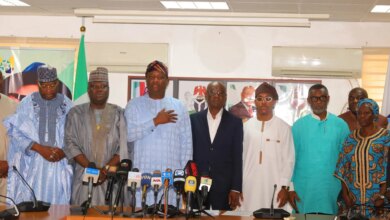Between tradition and modernity: A cultural theory analysis of polygamy in Ghana


The stability of any social order depends not merely on formal structures of governance, but on the intimate arrangements through which societies reproduce themselves.
In Ghana, the persistence of polygamy amid modernization presents a case study in how traditional institutions adapt to — or resist — the pressures of economic development, religious influences, and legal rationalization.
One observes in contemporary Accra a phenomenon that would have been familiar to the incompatible principles within a single political space. A university-educated woman shares her husband with co-wives in Kumasi, while her colleague practices strict Christian monogamy.
Both arrangements claim moral authority; neither has achieved decisive dominance. This equilibrium — unstable yet enduring — suggests that Ghana’s marriage system exists in what might be termed a transitional phase, though one must resist the temptation to assume that all transitions necessarily conclude with Western outcomes.
Any serious analysis must begin by acknowledging that polygamy emerged not from barbarism but from rational adaptation to specific material conditions.
In precolonial Akan and Ewe societies, polygamous marriages served identifiable strategic purposes: they created networks of alliance between lineages, distributed agricultural labour efficiently, reduced infidelity and provided insurance against the demographic uncertainties of high mortality rates. The practice encoded a particular theory of social organization — one in which extended kinship networks.
These arrangements possessed their own sophisticated logic, comparable to Ananse’s intricate web — comprehensible from within, bewildering to external observers. Multiple wives represented not mere accumulation but strategic positioning within complex systems of reciprocal obligation. A man’s status derived less from wealth alone than from his ability to sustain networks of dependents and allies.
Yet structural explanations, while necessary, prove insufficient. They describe the system’s equilibrium without accounting for the differential distribution of power within it. The question of whose interests traditional institutions served cannot be evaded through appeals to cultural authenticity or functional necessity.
The feminist critique identifies a fundamental asymmetry: men accumulate options while women’s choices remain structurally constrained. Polygamy institutionalizes male advantage, creating hierarchies among women who compete for finite resources and attention within households where they are systematically outnumbered.
However, the relationship between structure and agency proves more complex than deterministic models suggest. Ethnographic evidence indicates that some Ghanaian women exercise agency within polygamous frameworks in ways that challenge simplistic victimhood narratives.
The senior wife often wields considerable authority. Some women report preferring polygamous arrangements precisely because they reduce demands for constant availability while providing networks of mutual support.
The analytical challenge resembles problems familiar to students of power: how does one assess actions taken under constraint? When options are limited, choosing the least objectionable alternative represents a form of agency, yet one cannot ignore that the menu of choices itself reflects underlying power asymmetries.
African feminist theorists like Oyèrónkẹ́ Oyěwùmí have cautioned against imposing Western analytical categories on African social formations without accounting for how colonialism itself restructured gender relations.
This bears directly on policy: whether reform should aim at eliminating polygamy entirely or at restructuring it to ensure genuine protections for all participants.
The British colonial administration pursued what might be characterized as a policy of selective modernization — not unlike the strategy that followed the Bond of 1844, where British authorities claimed jurisdiction over certain matters while ostensibly respecting indigenous institutions.
The result was legal pluralism: the simultaneous operation of customary law permitting polygamy, statutory law forbidding it, and Islamic law regulating it according to Quranic principles.
This system created opportunities for strategic manipulation — a dynamic familiar to anyone who has studied how the Fante Confederacy attempted to navigate between British and Asante power. A man might contract marriage under customary law — which permits polygamy — then subsequently marry under statutory law, which does not.
The first wife loses protections available under the second framework while the man retains advantages from both.
One notes a certain irony: Western societies that practice high rates of divorce and remarriage — what might be termed sequential polygamy — condemn simultaneous polygamy as barbaric.
As Ayi Kwei Armah observed in examining postcolonial corruption, everyone’s covered in filth, but some insist their dirt is cleaner. The question is not whether multiple partners represent moral failure, but whether societies will acknowledge their actual practices rather than maintaining fictions of compliance with stated norms.
Moreover, colonialism transformed polygamy’s economic foundations. The introduction of wage labour and individual property rights undermined reciprocal kinship obligations while concentrating economic power in male hands — much as the expansion of cocoa farming in the early twentieth century disrupted traditional land tenure systems and created new forms of inequality.
What may have operated within frameworks of mutual obligation became, under capitalism, a starker expression of patriarchal dominance.
In contemporary urban Ghana, polygamy persists but in modified form. Professional men maintain multiple households with corporate efficiency: scheduled rotations, financial transparency, formal agreements. These arrangements represent neither pure tradition nor simple modernity but hybrid forms adapting old institutions to new contexts.
Simultaneously, Pentecostal Christianity wages ideological warfare against polygamy. Yet even here, power dynamics intrude. Churches may condemn polygamy publicly while accommodating wealthy polygamous donors privately. The practice continues, driven underground rather than eliminated.
This pattern suggests a broader truth about cultural change: formal prohibitions prove less decisive than underlying material incentives and power distributions. The precedent of the 1957 independence constitution is instructive — it proclaimed Ghana a secular republic while simultaneously recognizing customary and religious laws, creating the very legal pluralism that persists today.
So long as polygamy offers strategic advantages to men with resources — and so long as women face economic constraints that make sharing wealthy men preferable to exclusive relationships with poor ones — the practice will persist regardless of legal or religious condemnation.
Polygamy in Ghana illustrates several principles relevant beyond this specific case. First, cultural practices cannot be understood apart from the material conditions and power structures in which they are embedded. Second, change rarely proceeds linearly from tradition to modernity; more commonly, new forms emerge that combine elements of both.
Third, the relationship between formal rules and actual behaviour remains complex, particularly when multiple legal systems operate simultaneously.
For policymakers, this analysis suggests that neither wholesale prohibition nor uncritical acceptance proves adequate. The objective should be ensuring that whatever marriage forms exist provide genuine protections — particularly for women and children — rather than imposing external models that may prove unsuitable or unenforceable.
The question is not whether Ghana should maintain polygamy but whether it can create frameworks ensuring that all participants in any marriage form enjoy legal protection, and material security. That represents a more modest but more achievable goal than either defending tradition uncritically or imposing unstable foreign models wholesale.
The author, V. L. K. Djokoto (b. 1995) is a forward-thinking Ghanaian cultural theorist, financier and gallerist. He leads D. K. T. Djokoto & Co — an old-fashioned top-tier multi-family office, established in 1950.
Through expertly curated artistic experiences, he seeks to mobilise Ghanaians weaving African music, literature and art. He is the author of Revolution.
DISCLAIMER: The Views, Comments, Opinions, Contributions and Statements made by Readers and Contributors on this platform do not necessarily represent the views or policy of Multimedia Group Limited.
DISCLAIMER: The Views, Comments, Opinions, Contributions and Statements made by Readers and Contributors on this platform do not necessarily represent the views or policy of Multimedia Group Limited.
Source link





